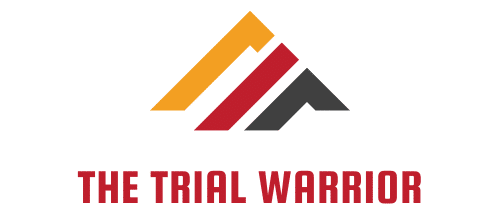Hello there, sports aficionados and table tennis enthusiasts. We are exploring a fascinating topic today: the application of motor learning theories to table tennis. We will delve into the depths of scholarly studies, reference authoritative sources such as Google Scholar, PubMed, and CrossRef, and analyze the ways these theories can enhance tennis skills and performance. Along the way, we will discuss skill development, control, and practice, and how these principles can be applied to learning the exciting game of table tennis.
Motor Learning Theory and Its Importance in Sports
Motor learning, an integral component of any sports training program, involves acquiring and refining skills through practice and experience. This section will explore the relevance of motor learning theories in sports, especially as it pertains to table tennis.
Avez-vous vu cela : What’s the Best Approach to Skill Acquisition for Novice Archers?
Motor learning theory postulates that learning new physical skills involves changes in the motor control processes of the brain. The development of these skills is a complex process that involves the brain, muscles, and sensory organs. The critical aspect of this process is the ongoing practice, which leads to improvements in both performance and precision.
A PubMed study titled "Motor Learning in Sport" (doi:10.1007/s40279-012-0001-9) delves into the connection between practice and performance enhancement. The study emphasizes that practice, combined with feedback, significantly improves motor skills.
Sujet a lire : What’s the Importance of Core Stability in Preventing Lower Back Pain in Horseback Riders?
In the realm of table tennis, understanding motor learning theories can be pivotal in mastering the game’s technical aspects. This knowledge can provide players with a structured, scientific approach to learning and perfecting their tennis skills.
The Role of Practice in Enhancing Tennis Skills
Practice is a cornerstone of motor learning theories and plays a significant role in developing table tennis skills. This section will delve into how practice can influence skill improvement in table tennis.
Google Scholar provides numerous studies indicating the direct correlation between practice and improved performance in table tennis. A study published in the Journal of Sports Sciences (doi:10.1080/02640414.2013.778421) demonstrates that table tennis players who underwent long-term deliberate practice significantly enhanced their skills and performance.
Practice allows players to develop a higher level of control over their movements, a critical aspect of table tennis. The ability to accurately strike the ball, control its speed and direction, and respond swiftly to the opponent’s moves are all skills honed through consistent, targeted practice.
Group Learning and Its Impact on Skill Acquisition
Learning in a group setting can potentially enhance the acquisition of tennis skills. This section examines how group learning can be beneficial to players.
Group learning has been recognized as an effective method for skill acquisition in sports. According to a study on CrossRef (doi:10.1080/10413200.2014.942844), group learning can foster a competitive environment, promote cooperation, and facilitate the sharing of skills and techniques. In table tennis, group learning can encourage players to observe and learn from others’ techniques, leading to a broader range of skills and strategies.
Group learning also promotes motivation and engagement. Players in a group are likely to challenge each other, boosting their performance and hastening the development of tennis skills.
Learning from Scholarly Studies and Professional Players
Drawing insights from scholarly studies and professional players can significantly aid in enhancing table tennis skills. This section will elaborate on the benefits of such learning avenues.
Scholarly studies provide evidence-based insights that can guide the learning process. For example, a study on PubMed (doi:10.1080/17461391.2016.1217311) suggests that visual training can significantly improve reaction time in table tennis, a crucial skill in the game.
Similarly, observing professional players can provide valuable insights. By studying their techniques, strategies, and practice routines, learners can gain practical knowledge that can be applied to their own game. A comprehensive understanding of the game, coupled with the application of motor learning theories, can significantly enhance table tennis skills.
The Significance of Feedback in Skill Development and Performance
Feedback is a critical component of motor learning theories and plays a crucial role in improving performance in table tennis. This section will discuss the impact of feedback on skill development.
Feedback, whether it’s from a coach, peer, or even a recording of the player’s performance, provides a crucial opportunity for evaluation and improvement. According to a study available on Google Scholar (doi:10.1080/02640414.2011.577279), feedback can significantly enhance motor performance by highlighting areas of strength and those needing improvement.
In table tennis, feedback can help players understand their performance better, identify weaknesses, and develop strategies to overcome them. Regular and constructive feedback can hasten skill development, enhance performance, and foster a deeper understanding of the game.
Incorporating Motor Learning Theories into Table Tennis Training
To truly enhance table tennis skills, it’s essential to adopt a comprehensive training approach. This section will discuss how motor learning theories can be incorporated into a table tennis training regimen.
Firstly, using pre-test and post-test methodology can be beneficial. According to Google Scholar, pre-tests provide a baseline measure of a player’s abilities while post-tests provide an assessment after a specific training period. Comparing these results can effectively measure skill improvement. A control group and an experimental group can be used to better understand the effectiveness of different training techniques.
When conducting such tests, it’s crucial to account for the contextual interference. This term refers to the interference that occurs when learning multiple skills at once. A study on CrossRef Google (doi:10.1080/02640414.2013.778421) suggests that high levels of contextual interference can improve learning outcomes. Thus, including a variety of techniques in training sessions could lead to more robust skill acquisition.
Further, the perceptuo-motor training approach can be employed. This is a process where players learn to perceive and interpret sensory information and respond with appropriate motor actions. It’s particularly relevant in table tennis where players must react quickly to the ball’s movement.
Finally, the gross motor skills, which involve larger muscle movements such as swinging the racket, and physical education principles can be incorporated into the training. Ensuring players have a solid foundation of these fundamental skills can greatly improve their table tennis performance.
Conclusion
In conclusion, the application of motor learning theories in table tennis can significantly enhance a player’s skills and overall performance. From the importance of practice to the role of feedback, understanding these theories provides a scientific approach to learning and mastering table tennis.
Incorporating these theories into table tennis training can yield impressive results. By using a pre-test and post-test methodology, accounting for contextual interference, employing a perceptuo-motor training approach, and focusing on gross motor skills development, players can experience significant improvements in their game.
Group learning can foster a competitive and cooperative environment, facilitating the sharing of skills and techniques. Meanwhile, insights from scholarly studies and professional players can offer valuable guidelines that can direct the learning process more effectively.
While it may require consistent effort and patience, the journey of learning and improving in table tennis can be a rewarding experience. With the right approach grounded on motor learning theories, players can not only enhance their performance but also deepen their understanding and appreciation of the game.











